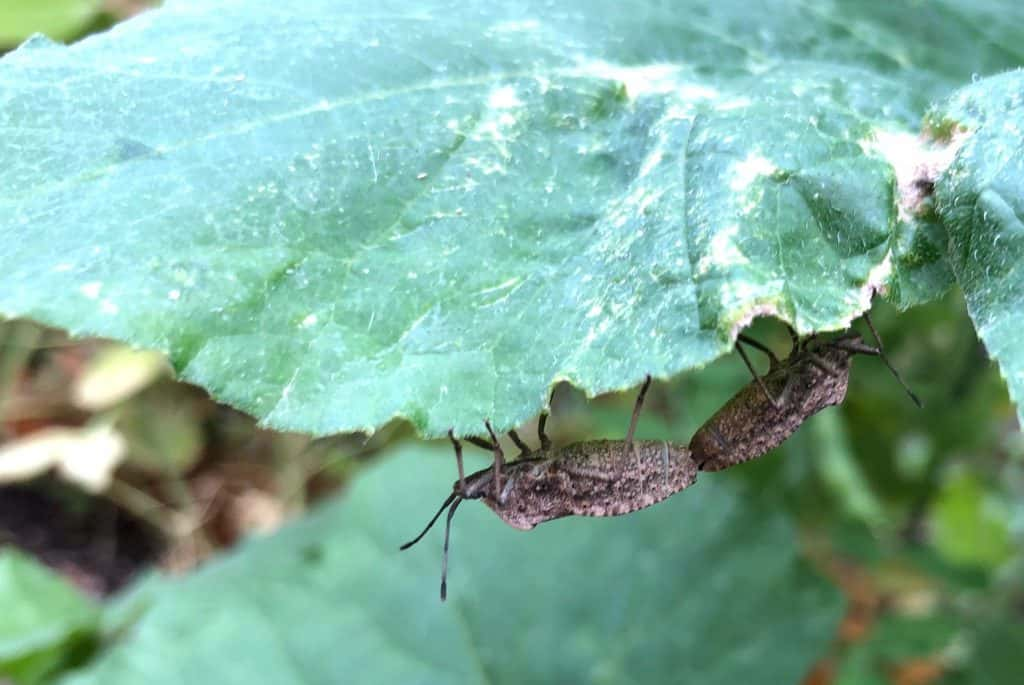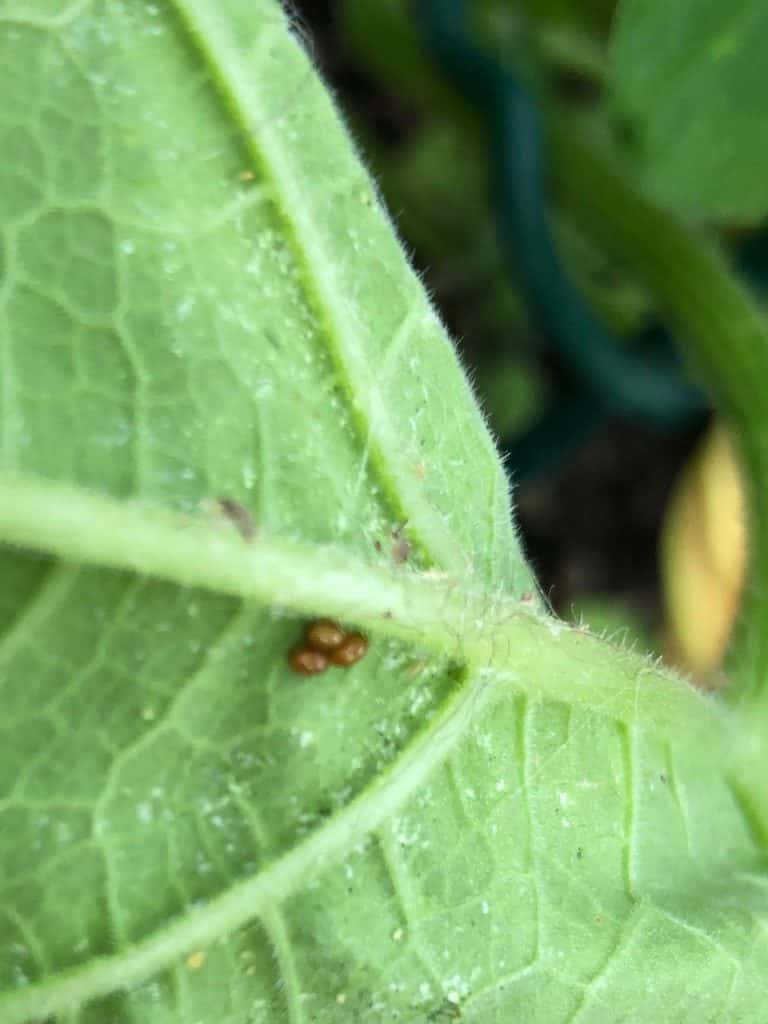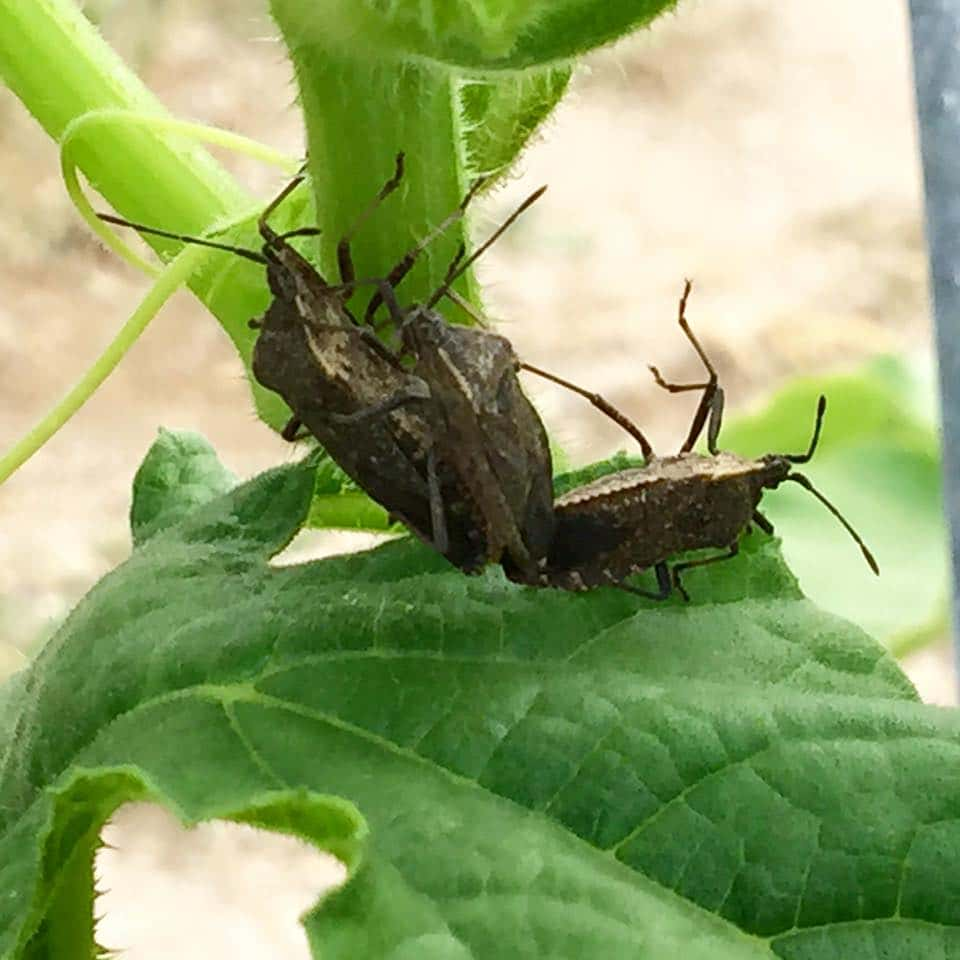The PNW Pest Alert Network posted a notice about the dreaded squash bug, Anasa tristis, late last week. 
Saturday, I checked my tromboncino squash plant, and was very sad to find six of the bugs. Sunday, I discovered two more and they were mating.
These adult bugs overwintered somewhere nearby. Maybe in my garden, although I didn’t see any last year, or in a neighbor’s garden. They fly to host plants in June, which include zucchini, summer squash, pumpkins – even cucumbers and watermelon. They might do a little snacking by sipping on the life juice of the plants, but it’s their babies that can kill plants or reduce the harvest. They also spread disease.
I checked the underside of every leaf of the plant and found three eggs. These I squished.
Controlling squash bugs is not easy. The adults are resistant to pesticides, both regular and organic. Chemicals can be used to control the nymphs, but they tend to stay on the underside of leaves and you have to coat everything. Probably more than once.
More info on control here, and here.
The best thing to do in a home garden is stalk the adults and dispose of them. Drop them, and nymphs, in soapy water. You can also squish the adults. They smell like Jolly Ranchers and are filled with green juice from your plants.
Look for eggs on the underside of leaves and squish those. Use the back of a spoon, your fingers, or use duct tape to remove them. Be sure to throw them away if you use tape. Do not put them in a compost bin.
I’m collecting the bugs I find this season to see just how many I will catch. They will slowly die in this plastic bag and I will be happy about it.
I will also parade that bag around the plant so any other squash bugs hanging around can see what I’m capable of doing and leave. Yeah. That will work, right?
They mate through the middle of July. The generation that hatches now will hide as adults until next year to start this all over again.
There have been years when squash bugs have infested my plants so severely, I’ve ripped plants out and thrown them away. Here’s hoping I can stay ahead of them this year.
One year when I was helping with a school garden, I saw this kind of mating. Really!
~Debbie




